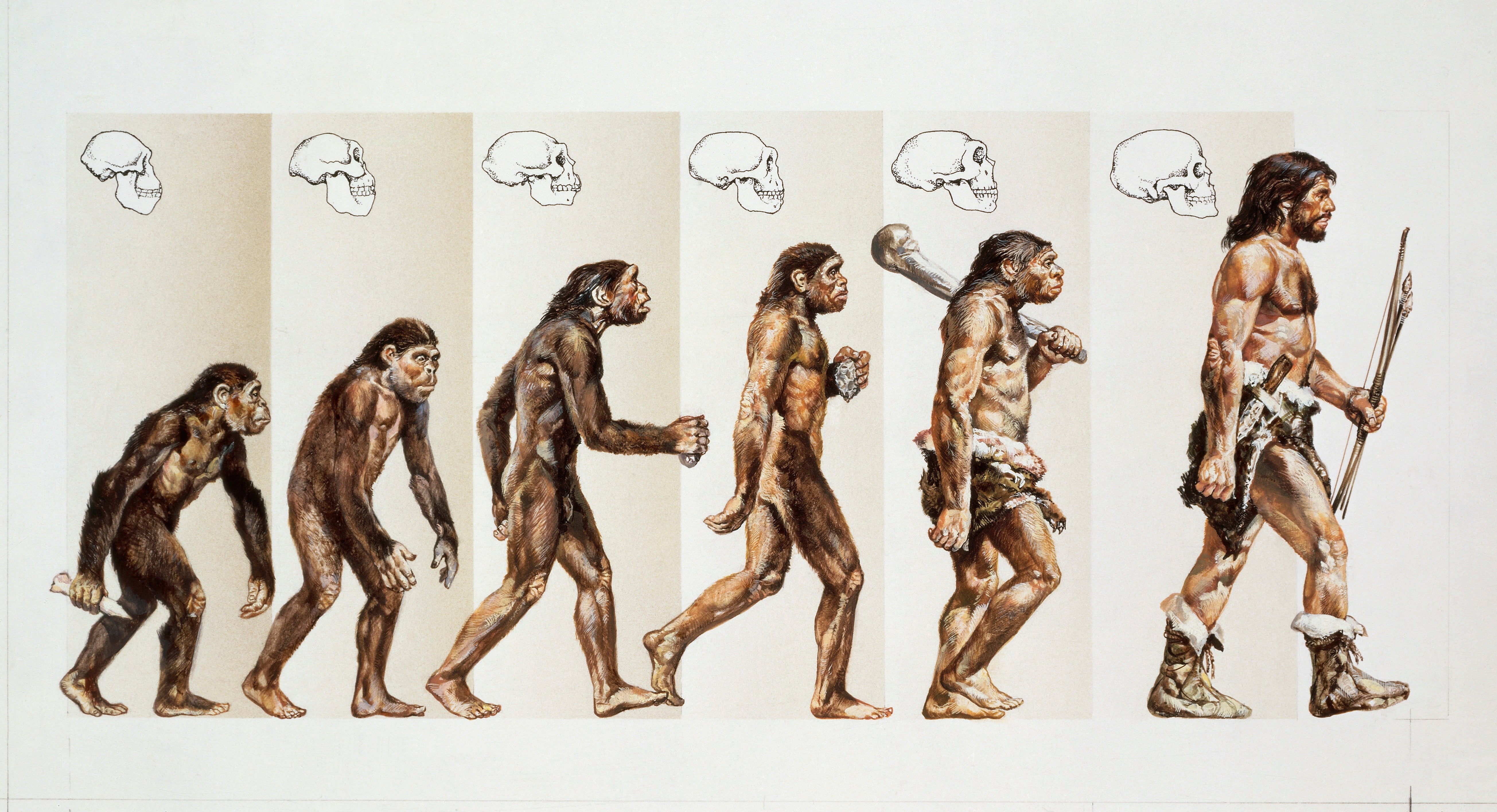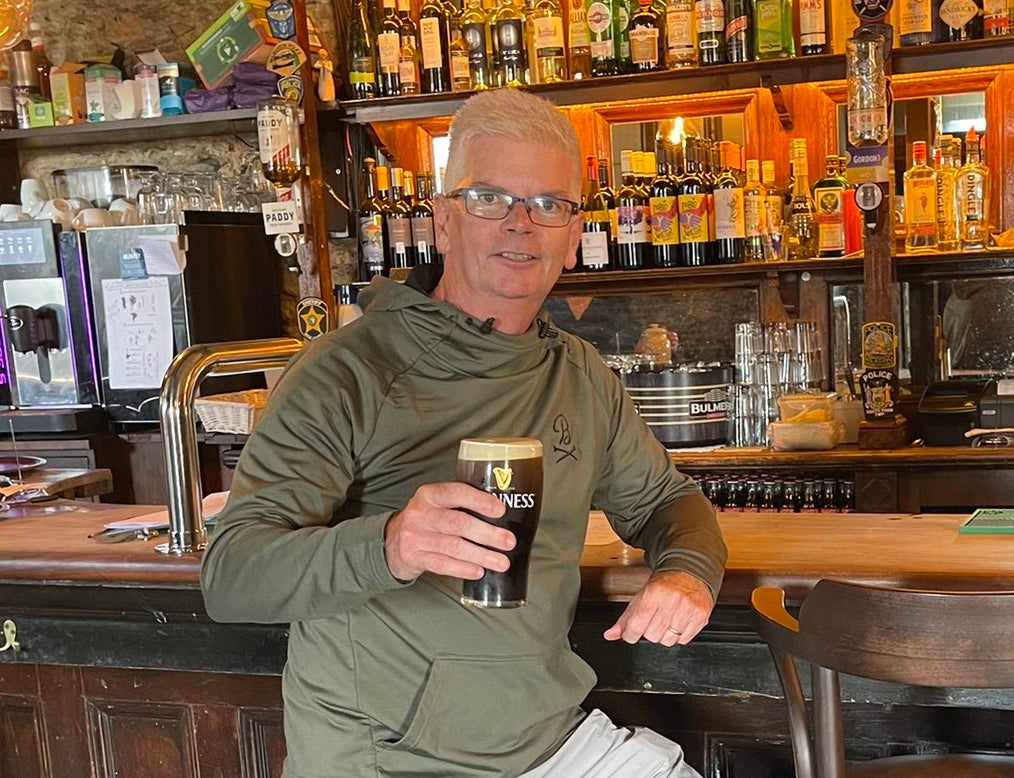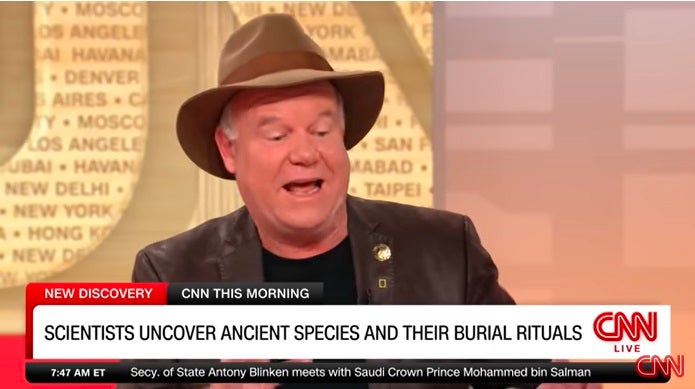Scientists Keep on Finding New Species of Human, Suggesting Everything We Know About Our Origins is Wrong
 DEA PICTURE LIBRARY. Getty Images.
DEA PICTURE LIBRARY. Getty Images.When Dave Portnoy reacquired 100% of Barstool yesterday, it brought promise that this proud institution he created (and brought me onboard soon thereafter) 20 years ago might return to the roots of our past. And so, in my first blog since the announcement, I'm going way back to our past. 300,000 years or so. Because if there's one thing we've been missing on this site these last few years, it's been some good anthropology talk.
Yes, the return of The Pirate Ship might be the biggest story in the history of mankind. But close behind are some of these updates about the origin of our species. Because if you're even the slightest bit curious about how your ancestors and mine went from climbing down from the trees and learning to walk upright to using a rectangle in our pockets to play Candy Crush, it's been a hell of a few weeks for you.
It turns out our family tree has branches, twigs and even trunks we're only just now finding out about:
Source - Scientists believe they may have identified a new species of human after finding an ancient skull that belonged to a child who lived up to 300,000 years ago.
The fossilised remains, which included a jaw, skull, and leg bones, were discovered in Hualongdong, China in 2019.
What bemused experts, however, is that the individual's facial features did not match the lineage which split to form Neanderthals, nor Denisovans, nor us, leading them to suspect that we might be missing a branch from the human family tree.
Interestingly, researchers say the species 'did not possess a true chin'.
This would make it more Denisovan-like – an extinct species of ancient human in Asia that split from Neanderthals more than 400,000 years ago.
I'm willing to acknowledge it's just possible I have a greater fascination for ancient species of human that don't "possess a true chin" than the average person, for some reason.

Nevertheless, this is a fascinating discovery. Made all the more so by yet another scientific revelation:
Source - Scientists may have discovered a new human species for a second time this week.
Anthropologists in France found a 45,000-year-old pelvic bone of an infant, which is neither a match to Neanderthals nor Homo sapiens.
The hip bone was found with the remains of 11 Neanderthals in the Grotte du Renne cave, later settled by anatomically modern humans (AMHs), suggesting the child coexisted with the now extinct species.
So while our great-to-the-100th-power-fathers were kicking around the Fertile Crescent and parts of Europe looking to score some non-poisonous berries that would pair well with that night's mastodon tenderloins, they were in a fight for survival with yet another species of hominid altogether. Which only serves to draw a bright yellow highlighter across what a miracle our existence is. Homo sapiens did you this species what the 1985 Bears did to the Ray Berry Patriots. Otherwise we're not having this cyber conversation.
And all of this comes on the heels of yet another anthropological breakthrough. The unearthing of a site where primates we would barely be able to distinguish from chimps actually used to conduct funeral rites:
Source - Researchers have uncovered evidence that members of a mysterious archaic human species buried their dead and carved symbols on cave walls long before the earliest evidence of burials by modern humans.
The brains belonging to the extinct species, known as Homo naledi, were around one-third the size of a modern human brain.
The revelations could change the understanding of human evolution, because until now such behaviors only have been associated with larger-brained Homo sapiens and Neanderthals. …
Both the burials and the symbols imply that Homo naledi was capable of engaging in meaningful behaviors, said Agustín Fuentes, National Geographic Explorer, on-site biocultural specialist and lead author of the third study.
First of all, huge amounts of respect to the good doctor for realizing he was going on CNN looking like the Skipper from Gilligan's Island but needed to give off that Big Archaeologist Energy. So he ran down to Spirit Halloween and grabbed an Indiana Jones hat off the rack:

… then starts the interview with a comment about PTSD from almost dying in a cave. Those 70 year old women who still watch CNN must've been ovulating for the first time since 9/11. Kudos to him.
More importantly, this is perhaps the most astonishing find of all these. Species only slightly similar to us not only burying their dead, but marking the graves with symbols? The implications of this are profound. Triangles. Crosses. Parallel lines. Hashtags. These suggest that there's a universality to such images. Perhaps suggesting even a consciousness beyond our own ability to comprehend it, when you consider how such symbols have connected great thinkers down through the ages. Such Plato, Archimedes, Euclid, Pythagoras, Newton and Phil Jackson. (And possibly the Illuminati.)
I mean, doesn't the mere suggestion Homo naledi conducted burial rituals connect us to them over the eons? Make modern humans seem more a part of the vast cosmic unconsciousness of the universe? Even while part of me cringes to think how awkward and dreary the small talk at the service must've been.
"How's your family doing?"
"Oh, fine. Fine."
"Your son must've gone through the rite of passage by now."
"Yup. During the last solstice. He's with the valley dwellers now and looking for a fertile mate. Yours?"
"You know how the young are. He broke his leg on a log so we had to eat him."
"I hear you. Same thing happened with my brother's offspring during the hunt."
"Oogluk looks good though, huh? The tribal elders did a nice job preparing his decaying corpse."
Still, this all serves to remind us of our place on this spinning blue marble. And how much more we still have to learn about ourselves. As well as our future, now that The Pirate Ship is back.


